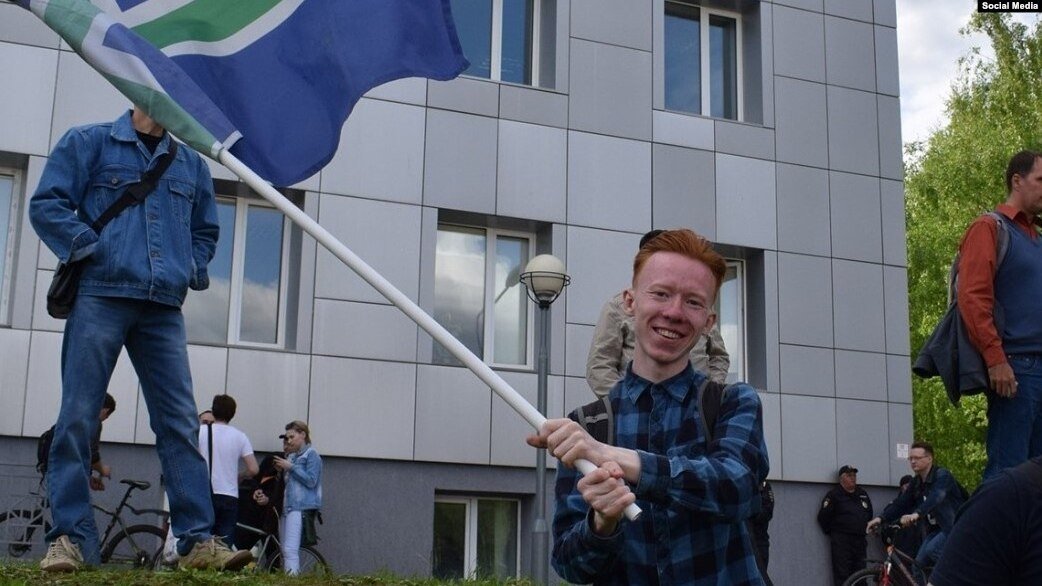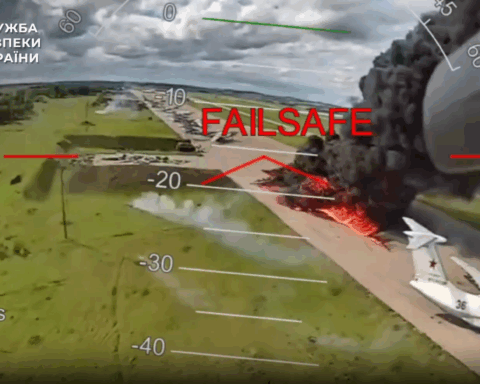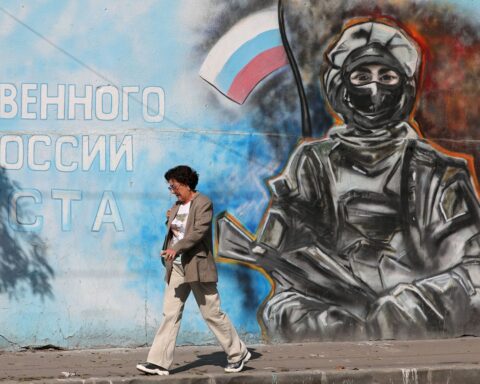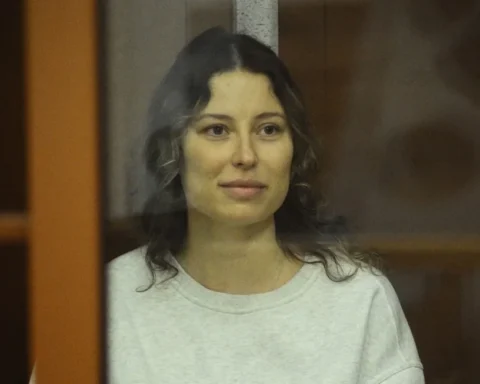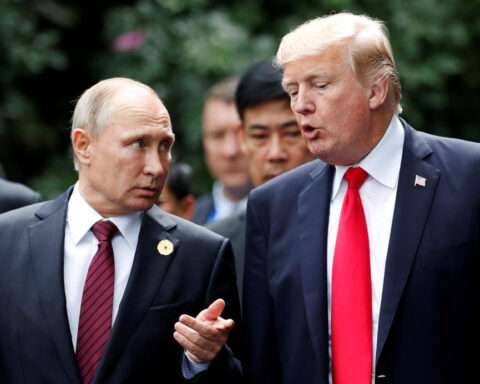Things got interesting when the judge started asking him questions in Russian — and Ivanov, who speaks Russian fluently, opted instead to answer in his native language, Komi.
“Do you have a Russian passport?” she yells at him in Russian, according to an audio recording of the proceeding. “You live in Russia! You studied at a Russian school!”
“We live in the Komi Republic. There are two state languages here: Komi and Russian,” he replies in Komi.
The judge then orders a translator to be provided: “And so the circus begins,” she is heard muttering in Russian. “Citizen of Russia….”
On the one hand, the court case heard on February 11 was unremarkable: Ivanov was one of several people who faced charges, mostly misdemeanor accusations, for participating in the protests calling for Navalny’s release and decrying President Vladimir Putin’s government.
The demonstrations held on the last two weekends in January were some of the largest Russia has seen in decades, and were met in some places with a brutal response by riot police.
But Ivanov’s defiance of the judge and his insistence on speaking only Komi highlighted another simmering issue across Russia, particularly in the farther-flung regions: non-Slavic ethnic communities and indigenous groups that are increasingly chafing at what they see as a “Russian First” chauvinistic attitude — to the exclusion of dozens of other official and unofficial languages used across the country.
An Important Distinction
In a telephone interview with RFE/RL’s Tatar-Bashkir Service, Ivanov, 25, said the roots of the judge’s anger toward him were clear.
“She was angry not because I refused to speak, but because I started speaking to her in Komi,” he said in the interview on February 13.
“From the very beginning, she began to talk about a ‘Russian’ school, and about a ‘Russian’ passport. For me this is incomprehensible, because there is no such thing as a ‘Russian school, Russian passport,'” he said.

He drew the distinction between the word “Russky,” which the judge used and which refers to an ethnic Russian person and the Russian language, among other things, and the word “Rossiisky” — which refers to a citizen of Russia of any ethnicity and is part of the country’s formal name, the Russian Federation. In English, both words mean “Russian.”
For non-Slavic citizens of the Russian Federation, that’s an important distinction.
“For us in Russia, everything is ‘Rossiisky.’ I have the right to speak my native language,” he said.
Dying Languages?
Russia has about three dozen official, or state, languages that have status alongside the Russian language in regions where large groups of people who speak them live. They include everything from Tatar, a Turkic-language spoken by the country’s second largest ethnic group, Tatars, to Buryat, a Mongol-related language spoken largely in areas to the east of Lake Baikal.
There are dozens of other languages that are spoken in smaller communities but do not have the status of a state language: for example, Evenki, spoken by Evenk communities scattered around much of Siberia.
Russian is the language of instruction in nearly all public schools, and things like national TV broadcasts. But in places like Tatarstan, there are Tatar-language TV and radio broadcasts, and newspapers and journals.
Activists scattered among non-Russian ethnic groups increasingly contend that heavy-handed policies from Moscow, often pushed by chauvinistic scholars, discriminate against less prominent languages and deprive communities of funding or support to make sure they don’t disappear.

In 2017, Putin said that children should not be compelled to study languages that are not their mother tongues. The comment followed complaints from ethnic Russians in some regions with large non-Slavic populations — and was seen by minority activists as carte blanche for regional officials to squeeze out languages other than Russian.
Recent remarks in which he criticized ethnic-Russian bias notwithstanding, activists and advocates for Russia’s ethnic minorities have also complained that Putin’s rhetoric increasingly echoes Slavic nationalist themes, and that this has led to further discrimination against non-Slavic groups and their cultures.
In 2018, Russia’s lower house of parliament passed legislation that canceled the mandatory teaching of indigenous languages in public schools.
These fears were crystalized in part by the plight of Albert Razin, a lifelong scholar and advocate for the Udmurt language, which is distantly related to Komi and is spoken mainly in the central Volga region of Udmurtia.
Razin died in September 2019 after setting himself on fire in front of city hall in Izhevsk, the capital of Udmurtia, to protest the decline of his language.


